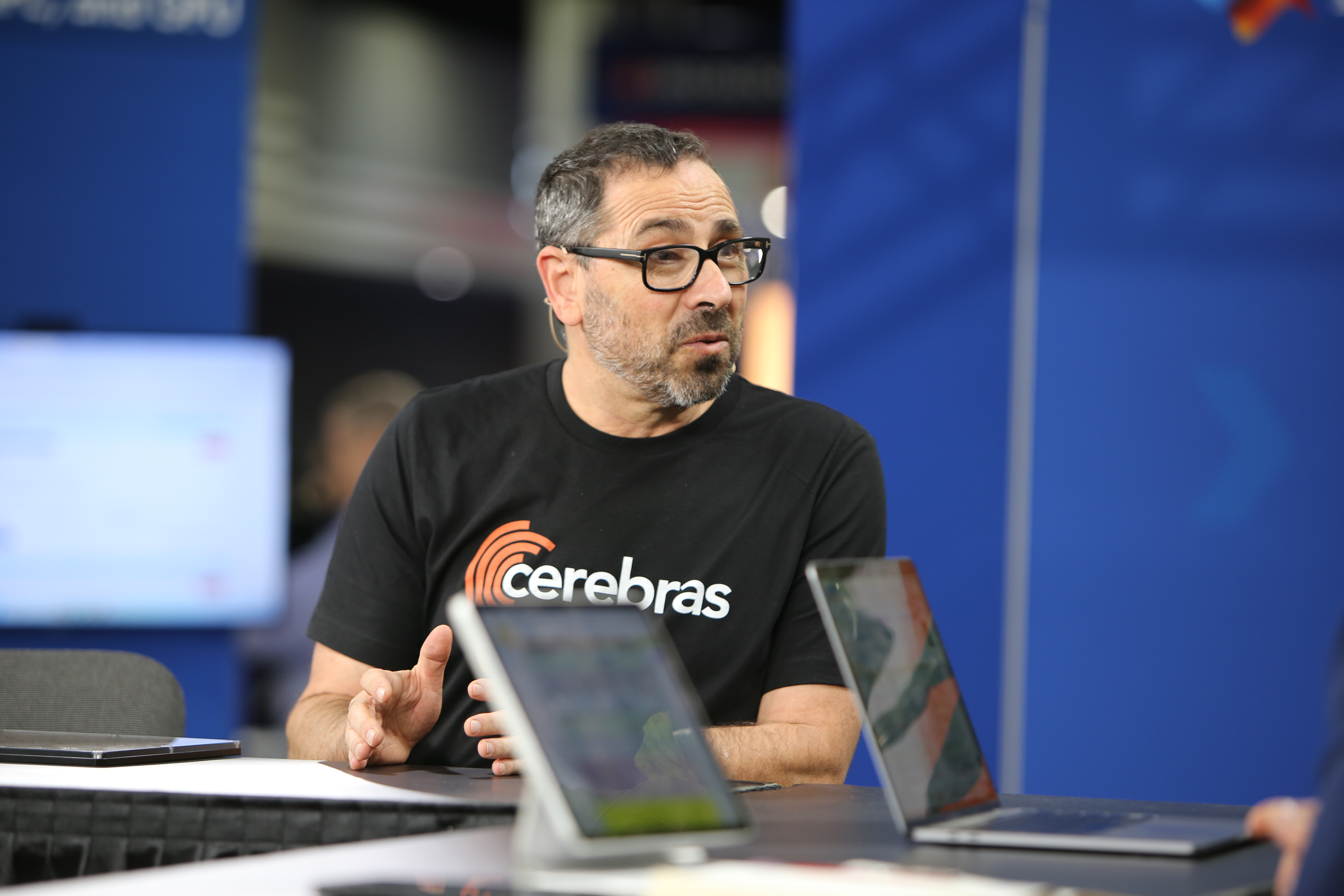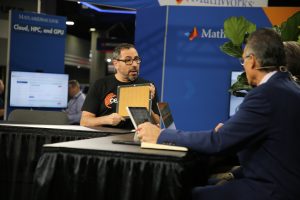 AI
AI
 AI
AI
 AI
AI
Artificial intelligence is evolving rapidly, and AI hardware advancements are revolutionizing training and inference for large language models.
This transition reshapes how businesses and researchers approach compute-intensive tasks, such as training and inference for large language models. As the demand for AI capabilities grows, chip design and system architecture innovations are driving unprecedented performance gains, efficiency and scalability, according to Andrew Feldman (pictured), co-founder and chief executive officer of Cerebras Systems Inc.

Cerebras Systems’ Andrew Feldman talks to theCUBE about AI hardware advancements.
“Obviously, big chips aren’t right for everything — they’re wrong for your cell phone, and they’re probably wrong for your car,” Feldman said. “But in AI, we’re not interested in the behavior of one chip. We’re interested in the behavior of tens of thousands of chips. And tens of thousands of little tiny chips create a tremendous complexity of trying to tie them together again.”
Feldman spoke with theCUBE Research’s Dave Vellante and John Furrier at SC24, during an exclusive broadcast on theCUBE, SiliconANGLE Media’s livestreaming studio. They discussed advancements in AI hardware, specifically Cerebras Systems’ development of the world’s largest chip and its transformative impact on AI training, inference and system design. (* Disclosure below.)
Traditional configurations require extensive interconnectivity and power management, which can hinder performance. By keeping more data on a single, massive chip, Cerebras Systems reduces power consumption, speeds up computations and simplifies programming, Feldman explained.
“When chips start, they start as a wafer. They’re cut up into little pieces, they’re put in different machines, and then we tie them back together again to get them to behave,” Feldman added. “Our view is why are we cutting them up. What if we could keep more information on the chip? We would use less power, we would produce results in less time and we would make it vastly easier to program.”
While training AI models has historically garnered the most attention, the spotlight is now shifting to inference — the process of applying trained models to real-world tasks. Cerebras Systems has set industry benchmarks with its high-speed inference capabilities, according to Feldman.
“We do both inference and training. We have partners around the world,” he said. “Our inference business is exploding. Remember, training makes AI and inference uses AI. And right now, people want to use AI like crazy. What we’re seeing is an overwhelming demand for inference.”
Inference isn’t just about speed; it’s also about improving accuracy. With AI hardware advancements, such as Cerebras Systems’ high-speed inference, businesses are achieving both speed and improved accuracy in AI applications, Feldman added.
“What we all want is more accurate models. What they’ve shown is through techniques like agentic models and through techniques like the chain of thought, you can use speed to ask the model to improve itself,” Feldman said. “In a train of thought flow, the accuracy of the model improves. So, what we’ve pioneered is the fastest inference, bar none.”
Here’s the complete video interview, part of SiliconANGLE’s and theCUBE Research’s coverage of SC24:
(* Disclosure: TheCUBE is a paid media partner for SC24. Neither Dell Technologies Inc. and WekaIO Inc., the premier sponsors of theCUBE’s event coverage, nor other sponsors have editorial control over content on theCUBE or SiliconANGLE.)
Support our mission to keep content open and free by engaging with theCUBE community. Join theCUBE’s Alumni Trust Network, where technology leaders connect, share intelligence and create opportunities.
Founded by tech visionaries John Furrier and Dave Vellante, SiliconANGLE Media has built a dynamic ecosystem of industry-leading digital media brands that reach 15+ million elite tech professionals. Our new proprietary theCUBE AI Video Cloud is breaking ground in audience interaction, leveraging theCUBEai.com neural network to help technology companies make data-driven decisions and stay at the forefront of industry conversations.